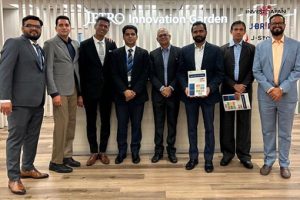In a proactive move to address the escalating impact of climate change and strengthen disaster preparedness, the Philippines has entered into a memorandum of understanding (MOU) with Atmo, an AI weather forecasting startup based in California. Given the country’s vulnerability to an average of 20 tropical cyclones annually and the recent decade milestone since Super Typhoon Yolanda (Haiyan), the move signifies a strategic step in leveraging artificial intelligence for more accurate and faster weather predictions.
Nathaniel Servando, officer-in-charge of the Philippine Atmospheric, Geophysical and Astronomical Services Administration (PAGASA), highlighted the evident changes in climate patterns due to global warming, emphasizing the need for advanced forecasting capabilities. The conventional numerical models currently employed by PAGASA require three hours for runtime, providing forecasts for only two days. The process demands significant computing resources.
The collaboration with Atmo aims to enhance PAGASA’s forecasting system by incorporating a high-resolution AI-powered weather forecasting system. The AI model, utilizing historical weather data, can deliver forecasts within 15 minutes, extending predictions up to 14 days or two weeks. This significant reduction in forecasting time and the ability to predict weather patterns further into the future is expected to significantly improve the country’s ability to prepare for and respond to extreme weather events.
As climate change continues to intensify the frequency and severity of disasters, the Philippines is embracing technological advancements, such as AI, to bolster its climate resilience and enhance its capabilities in predicting and mitigating the impact of natural disasters. The MOU with Atmo reflects a forward-looking approach in harnessing innovation to address the evolving challenges posed by a changing climate.






















